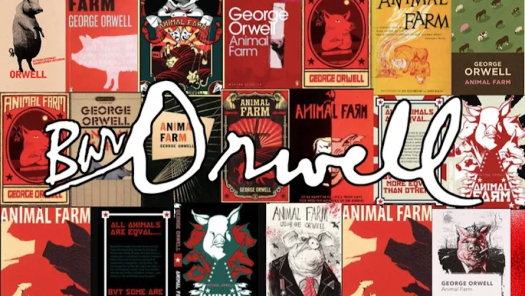In April of 2013, some 18 months after Steve Jobs died, comedy production house Funny or Die tapped Justin Long for iSteve — a rushed, 79-minute joke project that existed merely for the tongue-in-cheek claim it was the first biopic about the late Apple founder. It was followed by Asthon Kutcher's Jobs and Michael Fassbender's Steve Jobs with mixed results, the latter making a small awards season splash.
The rush to get Jobs' story on the silver screen made sense due to his legacy, but the stakes are decidedly lower for the tale of Doug Kenney. National Lampoon is a mostly forgotten property outside of comedy geek circles, so Kenney's admittedly interesting story could have come out at any time. Unfortunately, David Wain's emotionally guarded and cheap-looking Netflix biopic shares a rushed aesthetic and disjointed narrative with Funny or Die's tossed-off Jobs flick.
Will Forte stars as, well, pretty much Will Forte — the film's constant breaking of the fourth wall becomes tiresome quickly. As Kenney, he's a two-dimensional mirth-maker whose struggles —alcoholism, workaholism, drug addiction and philandering — are never explored beyond a surface level. Martin Mull plays a modern-day Kenney, narrating the film despite Kenney's real-life fate, but even his onscreen warmth can't make us empathize with our zany protagonist.
Kenney convinces his Harvard buddy Henry Beard (Domnhall Gleeson in a stock wig) that they should bring their college joke paper national after they graduate, and after convincing Weight Watchers Magazine honcho Matty Simmons (UCB mainstay and Veep breakout Matt Walsh) to fund their whim, National Lampoon is born.
As the magazine's ubiquity increases, Kenney and his ragtag gang of writers are forced to fill pages with humour content, made all the worse by his insistence on expanding the brand — while other writers are tasked with cranking out articles, Kenney adds to his workload with a radio show. Presumably to counter the pressures of work, he overindulges in drugs and alcohol, all the while cheating on his wife.
These beats would normally form the dramatic backbone for a film like this, but they often feel like a mere excuse to have a wide variety of recognizable comedic faces stand in for various bit roles around the rise of the National Lampoon brand. These include hit-and-miss turns from Thomas Lennon as Michael O'Donoghue, Joel McHale as Chevy Chase, Jon Daly as Bill Murray and, perhaps in the film's most egregious casting, John Gemberling (Broad City's Bevvers) as John Belushi.
A Futile & Stupid Gesture's biggest disappointments are its missed opportunities. Aside from Kenney's inner demons, which are handled with kid gloves, the film fumbles through brief flirtations with identity politics (one lazy scene acknowledges the all-white writers room with a critique from two token black characters that is never revisited) while never addressing the corrosive male gaze that dominated the Lampoon's output.
Worse yet are the plot points that could have been interesting. Take, for example, the fact that Lorne Michaels poached the entire cast of the National Lampoon radio show to start Saturday Night Live without Kenney's knowledge. It's the sort of ruthless business betrayal that could have created some compelling drama in the film, were it handled correctly.
Instead, A Futile & Stupid Gesture is a slight and unfocused dramedy with none of the drama and very little comedy. In the end, the film mostly feels like an excuse for some comedians to dress up as their heroes. It's rather lazy to reference a film's title in a negative review, but Wain's film is ultimately as shallow and disappointing as its moniker suggests.
(Netflix)The rush to get Jobs' story on the silver screen made sense due to his legacy, but the stakes are decidedly lower for the tale of Doug Kenney. National Lampoon is a mostly forgotten property outside of comedy geek circles, so Kenney's admittedly interesting story could have come out at any time. Unfortunately, David Wain's emotionally guarded and cheap-looking Netflix biopic shares a rushed aesthetic and disjointed narrative with Funny or Die's tossed-off Jobs flick.
Will Forte stars as, well, pretty much Will Forte — the film's constant breaking of the fourth wall becomes tiresome quickly. As Kenney, he's a two-dimensional mirth-maker whose struggles —alcoholism, workaholism, drug addiction and philandering — are never explored beyond a surface level. Martin Mull plays a modern-day Kenney, narrating the film despite Kenney's real-life fate, but even his onscreen warmth can't make us empathize with our zany protagonist.
Kenney convinces his Harvard buddy Henry Beard (Domnhall Gleeson in a stock wig) that they should bring their college joke paper national after they graduate, and after convincing Weight Watchers Magazine honcho Matty Simmons (UCB mainstay and Veep breakout Matt Walsh) to fund their whim, National Lampoon is born.
As the magazine's ubiquity increases, Kenney and his ragtag gang of writers are forced to fill pages with humour content, made all the worse by his insistence on expanding the brand — while other writers are tasked with cranking out articles, Kenney adds to his workload with a radio show. Presumably to counter the pressures of work, he overindulges in drugs and alcohol, all the while cheating on his wife.
These beats would normally form the dramatic backbone for a film like this, but they often feel like a mere excuse to have a wide variety of recognizable comedic faces stand in for various bit roles around the rise of the National Lampoon brand. These include hit-and-miss turns from Thomas Lennon as Michael O'Donoghue, Joel McHale as Chevy Chase, Jon Daly as Bill Murray and, perhaps in the film's most egregious casting, John Gemberling (Broad City's Bevvers) as John Belushi.
A Futile & Stupid Gesture's biggest disappointments are its missed opportunities. Aside from Kenney's inner demons, which are handled with kid gloves, the film fumbles through brief flirtations with identity politics (one lazy scene acknowledges the all-white writers room with a critique from two token black characters that is never revisited) while never addressing the corrosive male gaze that dominated the Lampoon's output.
Worse yet are the plot points that could have been interesting. Take, for example, the fact that Lorne Michaels poached the entire cast of the National Lampoon radio show to start Saturday Night Live without Kenney's knowledge. It's the sort of ruthless business betrayal that could have created some compelling drama in the film, were it handled correctly.
Instead, A Futile & Stupid Gesture is a slight and unfocused dramedy with none of the drama and very little comedy. In the end, the film mostly feels like an excuse for some comedians to dress up as their heroes. It's rather lazy to reference a film's title in a negative review, but Wain's film is ultimately as shallow and disappointing as its moniker suggests.




